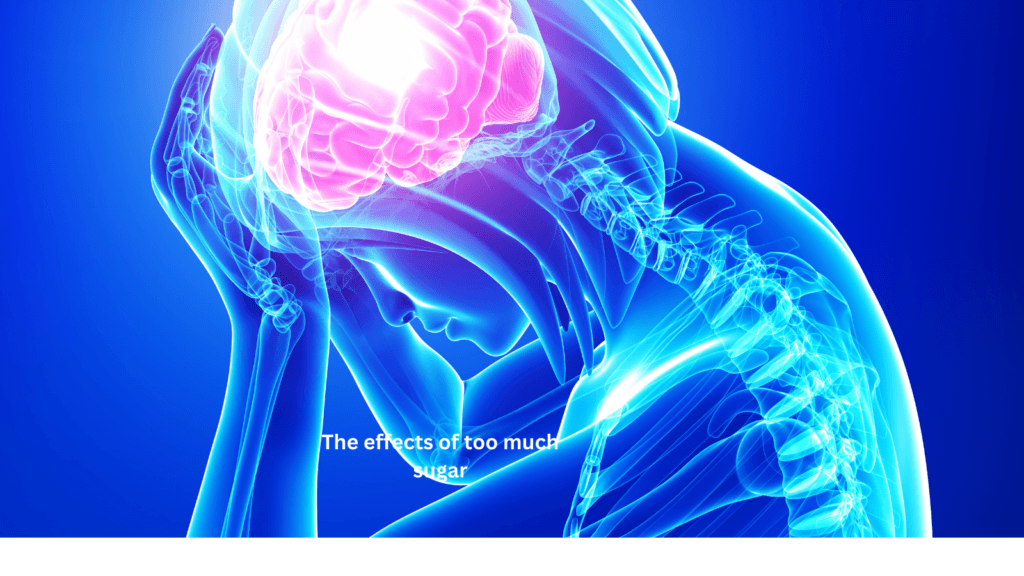
How Sugar Affects Brain Fog and Cognitive Function (And What to Do About It)
Brain fog. It’s that frustrating moment when you walk into a room and can’t remember why you’re there — but imagine dealing with it all day. If you’ve ever felt mentally sluggish, hazy, or unable to concentrate, you might be experiencing brain fog. While not a medical diagnosis, brain fog is often a symptom of an underlying issue, from stress to diet. One of the biggest culprits? Sugar.
What Is Brain Fog and What Causes It?
Brain fog is more than just occasional forgetfulness. It’s a persistent feeling of mental fatigue that can disrupt your ability to focus, remember information, or think clearly. The causes of brain fog can vary:
- Stress: Chronic stress drains your mental energy and affects focus.
- Lack of Sleep: Not getting enough rest means your brain doesn’t get the downtime it needs to function properly.
- Diet: Sugar, in particular, plays a significant role in brain fog.
Other medical conditions, like thyroid problems or chronic fatigue syndrome, can also contribute to brain fog. But let’s focus on sugar and its powerful effect on cognitive function.
The Science of Sugar and Your Brain
When you consume sugar, your brain gets an instant reward. The sweet treat triggers the release of dopamine, a neurotransmitter that makes you feel good. But like any quick fix, it comes with a downside.
Over time, too much sugar can cause inflammation in the brain, particularly in areas responsible for memory and cognitive function. High-sugar diets have been linked to impaired learning and memory retention. Inflammation disrupts the brain’s ability to process information, leading to foggy thinking, mood swings, and even long-term cognitive issues.
Research Backing This Up
A study published in Neuroscience & Biobehavioral Reviews found that a diet high in added sugars leads to reduced brain plasticity, affecting learning and memory. Another study from the Journal of Clinical Endocrinology & Metabolism highlighted how high sugar consumption could elevate the risk of cognitive decline over time.
By cutting back on sugar, you can reduce brain inflammation and start thinking more clearly.
How to Reduce Sugar and Lift the Brain Fog
Now that we know sugar is a major contributor to brain fog, the next step is to take action. Here are practical strategies to reduce sugar and boost cognitive function:
1. Spot Hidden Sugars
Sugar is sneaky and hides in unexpected places — from “healthy” granola bars to flavored yogurts. Check food labels for anything ending in ‘-ose,’ like glucose or fructose, as well as terms like “syrup” or “nectar.”
2. Choose Natural Sweeteners
Natural sweeteners like honey or maple syrup are better alternatives to refined sugars, but should still be used sparingly. Aim to satisfy your sweet tooth with whole fruits like berries or apples instead.
3. Incorporate Brain-Boosting Foods
- Leafy Greens: Kale, spinach, and broccoli are packed with antioxidants that reduce inflammation and support brain health.
- Nuts and Seeds: Almonds, walnuts, and flaxseeds are rich in omega-3 fatty acids that improve brain function.
- Lean Proteins: Foods like chicken, turkey, and tofu help maintain stable energy levels, reducing the spikes and crashes associated with sugary snacks.
4. Drink More Water
Dehydration can worsen brain fog. Make sure you’re drinking enough water throughout the day. Aim for at least 8 cups, or more if you’re active.
5. Get Regular Exercise
Exercise increases blood flow to the brain, helping with clarity and focus. Even a short walk can boost cognitive function and reduce mental fog.
6. Prioritize Sleep
Poor sleep contributes to brain fog. Aim for 7-9 hours of quality sleep each night. Creating a bedtime routine, avoiding screens before bed, and reducing caffeine intake can all help you get better rest.
Long-Term Benefits of Reducing Sugar

The benefits of cutting down on sugar go beyond just clearing up brain fog. Reducing sugar intake can improve your mood, reduce anxiety, and even lower your risk for long-term cognitive issues like dementia and Alzheimer’s.
According to a study published in the Journal of Alzheimer’s Disease, a diet low in refined sugars is associated with a lower risk of cognitive decline. This means that by making healthier food choices today, you’re also investing in your brain’s future health.
Practical Tips for Staying Consistent
It’s not just about cutting out sugar one time — consistency is key. Here are some habits you can build to ensure long-term success:
- Meal Prep: Prepare healthy snacks like veggies, nuts, or fruit in advance to avoid reaching for sugary alternatives when hunger strikes.
- Mindful Eating: Be aware of how much sugar you’re consuming by keeping a food diary. This will help you spot patterns and make healthier choices.
- Stay Active: Regular exercise keeps your energy levels stable, reducing the temptation to grab sugary snacks for a quick boost.
Conclusion: Your Brain Deserves Better Than Sugar
Reducing sugar isn’t just about losing weight or avoiding diabetes — it’s about optimizing your brain function. By cutting back on sugar and focusing on nutrient-rich foods, you can clear up brain fog, improve focus, and even protect your brain from long-term damage. So, grab a glass of water, ditch the sugary snacks, and start giving your brain the fuel it really needs to thrive.
Click here for “Complete Support For Healthy Memory, Concentration And Mental Acuity”
Here’s a little transparency: Our website contains affiliate links. This means if you click and make a purchase, we may receive a small commission. Don’t worry, there’s no extra cost to you. It’s a simple way you can support our mission to bring you quality content.”

